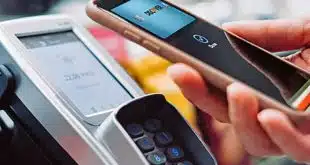Gasoline retailer Cumberland Farms, which operates nearly 600 stores in eight Northeastern states, is proving you don’t have to sell fancy coffee concoctions to generate impressive results with a mobile app.
The program, which Cumberland calls SmartPay, enrolled 100,000 customers in the first 45 days after its 2013 launch—a response that surprised even the company’s staunchest optimists. “That’s where we expected to be after six months,” David Banks, chief information officer for the Framingham, Mass.-based company, said last week at a smart card conference in Salt Lake City, Utah.
Since the initial rush, that response has slowed down, but SmartPay is still signing up users at a rate of 4,000 per week. Citing a metric of particular importance to Cumberland, Banks said the program has accounted for 250 million gallons of gasoline so far—including a record 1 million gallons in one day the week before last.
With SmartPay, which relies on the automated clearinghouse network and a process called decoupled debit, customers enroll a bank account that can be debited for purchases. After downloading the app, they can pull up to a pump in a Cumberland station, tap in the pump number and a PIN, and start filling their tank. The app, which works on both Apple Inc. and Android devices, relies on the phone’s geolocation technology to pinpoint the station.
The app automatically takes 10 cents off the price of each gallon, and can also pass along any other offers or promotions the company might want to offer. It also allows Cumberland to track purchases for better promotional targeting. This includes transactions at the counter of the convenience stores inside the stations, which users can do with a PIN-protected SmartPay card. “Through the program, we know what customers are buying,” Banks said.
But the deep gas discount, which is possible because of the ACH’s relatively low transaction cost, is what most accounts for SmartPay’s popularity. “The biggest driver for us is the gas discount,” said Banks. “People will run over their grandmother to save money on gas.” The app tallies the discount on each fill-up so customers can see their cumulative savings at a glance.
SmartPay relies on processing from ZipLine, formerly National Payment Card Association, a Coconut Creek, Florida-based provider of decoupled-debit programs for petroleum marketers. ZipLine holds a patent on the process of funding a mobile wallet from a checking account via the ACH.
Decoupled debit is not a new concept, but it appears to be enjoying renewed popularity in niche applications. It is so-called because the issuer of the card or payment token is not the same entity that holds the customer’s demand-deposit account.
As simple as the mobile app appears to be, it is not without some usage wrinkles, Banks conceded. The trickiest hurdle is the enrollment process, which by design is not fast. Users must submit an enrollment form that includes their bank-account data. Cumberland then tests the account by sending a so-called micropayment to it. Then the customer must wait for the payment, check his account, and report that he received it. “Sign-up is a little clunky,” said Banks.
But Cumberland is having more success with the ACH-based SmartPay app than was the case with a previous version that relied on processing by PayPal Inc. The original version launched with considerable fanfare in 2012 and offered a nickel discount on gas. But, despite the publicity, “that program never got widespread adoption,” said Banks. “So we went back to the drawing board.”
Asked about the lackluster result, Banks told Digital Transactions News it had to do with what consumers perceived as an anemic discount, which the new, ACH-based SmartPay was able to double. The disappointing response may also have reflected a relatively limited number of customers who had PayPal accounts, Banks said. By contrast, the ACH reaches virtually every consumer checking account in the country.





